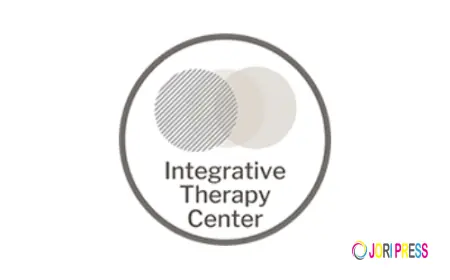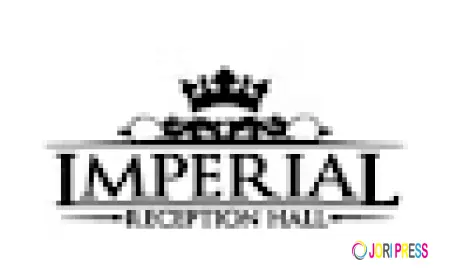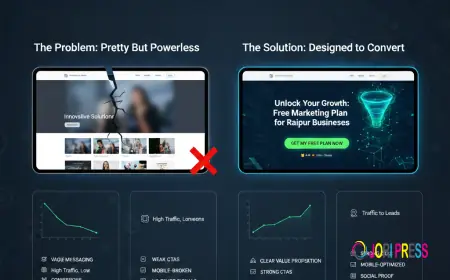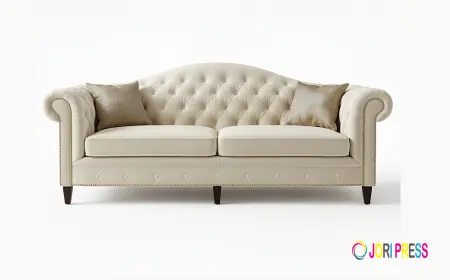Smart Bathroom Products Market to Reach New Heights
Smart Bathroom Products Market

The global smart bathroom products market is entering a transformative phase, fueled by a convergence of technological innovation, shifting consumer preferences, and the growing influence of smart home ecosystems. According to industry estimates, the market was valued at USD 6.83 billion in 2024 and is projected to reach USD 10.72 billion by 2030, reflecting a strong CAGR of 7.8% over the forecast period.
From touchless faucets that improve hygiene to AI-enabled mirrors that analyze skincare needs, the smart bathroom is no longer a futuristic concept but a rapidly mainstreaming lifestyle upgrade. As urbanization accelerates, disposable incomes rise, and wellness becomes central to daily living, bathrooms are evolving from functional spaces into luxurious, tech-enhanced sanctuaries that blend convenience, comfort, and sustainability.
This comprehensive study explores the underlying factors driving the market, the challenges restraining its full-scale adoption, and the opportunities awaiting both global giants and emerging players.
Industry Key Highlights
-
Strong Growth Outlook – The market is expected to grow steadily, expanding from USD 6.83 billion in 2024 to USD 10.72 billion by 2030.
-
Integration with Smart Homes – Bathrooms are becoming critical nodes in connected homes, with products like voice-controlled showers and IoT-enabled toilets.
-
Residential Dominance – Households remain the largest adopters, with consumers seeking enhanced comfort, hygiene, and wellness experiences.
-
Commercial Expansion – Hotels, resorts, airports, and hospitals are increasingly investing in smart fixtures to elevate guest experience and improve operational efficiency.
-
Asia-Pacific Surge – The region leads growth, particularly driven by China, Japan, South Korea, and India, due to urbanization and rising middle-class populations.
-
Luxury and Wellness – Premium smart bathroom solutions are gaining traction, combining luxury designs with wellness-oriented features.
-
Key Players – Companies such as TOTO, Kohler, American Standard, and Villeroy & Boch dominate innovation, while regional manufacturers target affordability.
-
Challenges – High installation costs, complex maintenance, and consumer data privacy concerns are barriers to mass adoption.
-
Innovation in Materials & Design – Eco-friendly, water-saving, and minimalist smart products are redefining the market landscape.
-
Sustainability Focus – Water conservation technologies and energy-efficient designs are becoming integral to product development strategies.
Download Free Sample Report - https://www.techsciresearch.com/sample-report.aspx?cid=28045
Market Dynamics
Emerging Drivers of Growth
1. Rising Smart Home Adoption
As consumers embrace digital living, smart bathrooms are increasingly integrated into connected home ecosystems. Voice-activated controls, mobile applications, and IoT-enabled systems allow homeowners to customize lighting, water flow, and even air quality within their bathrooms.
2. Wellness and Lifestyle Transformation
Bathrooms are evolving into wellness retreats, offering hydrotherapy bathtubs, aromatherapy showers, mood lighting, and smart mirrors with skincare analysis. The emphasis is no longer just hygiene—it’s about mental relaxation, health monitoring, and holistic well-being.
3. Hygiene and Touchless Innovations
The COVID-19 pandemic accelerated the demand for touchless faucets, dispensers, and self-cleaning toilets. Public facilities, hospitals, and airports adopted these products to enhance hygiene and reduce disease transmission, while households also began to view these features as essentials.
4. Urbanization and Rising Disposable Incomes
With rapid urbanization, particularly in Asia-Pacific and the Middle East, consumers are upgrading bathrooms with smart fixtures as status symbols and lifestyle enhancers. Increasing disposable incomes have made premium bathroom products more accessible to middle-class households.
5. Commercial Applications Fueling Growth
Hotels, luxury resorts, and healthcare facilities are major adopters of smart toilets and showers. These products not only enhance guest experiences but also reduce water consumption and operational costs—key considerations in commercial real estate.
Challenges Restraining the Market
-
High Installation and Product Costs – Smart bathroom products remain premium-priced, making them inaccessible to mass markets in developing economies.
-
Technical Complexity – Installation often requires professional expertise, and products demand regular software updates and maintenance, creating barriers for adoption.
-
Cybersecurity and Data Privacy – With health-monitoring toilets and voice-enabled devices collecting sensitive data, consumers remain wary about privacy breaches.
-
Limited Awareness in Emerging Markets – Many consumers are still unfamiliar with the benefits of smart bathroom solutions, requiring educational marketing campaigns.
-
Sustainability vs. Affordability Dilemma – While eco-friendly products are popular, the added costs make them less appealing in price-sensitive markets.
Segmentation Overview
By Application
-
Residential – Largest segment; consumers invest in smart showers, faucets, and mirrors to enhance daily living and property value.
-
Commercial – Growing adoption in hotels, airports, and healthcare facilities to improve hygiene, reduce costs, and attract premium clientele.
By Product Type
-
Smart Toilets – Lead the market with features like bidet functions, heated seats, automatic flushing, and health tracking.
-
Smart Faucets – Popular in both homes and commercial facilities for touchless operation and water-saving features.
-
Smart Showers – Allow users to personalize temperature, water flow, and lighting through mobile apps or voice commands.
-
Smart Dispensers & Accessories – Include soap dispensers, towel systems, and scent diffusers with IoT connectivity.
By Region
-
Asia-Pacific – Fastest-growing, driven by urbanization, government smart city projects, and innovations from Japanese and Chinese companies.
-
North America & Europe – Mature markets emphasizing sustainability, premium luxury products, and wellness-oriented bathroom spaces.
-
Middle East & Africa – Growing rapidly due to luxury real estate development and high water-scarcity concerns.
Emerging Trends
-
Luxury Smart Bathrooms
High-end innovations such as biometric toilets, holographic entertainment in bathtubs, and voice-controlled vanity units are gaining traction among affluent consumers. -
Eco-Friendly Innovation
Water-saving toilets, faucets with flow regulators, and energy-efficient lighting are being developed to meet global sustainability standards. -
Integration of AI & Health Monitoring
Next-gen toilets and mirrors integrate AI to monitor hydration levels, blood pressure, and even early signs of medical conditions, transforming bathrooms into health diagnostic hubs. -
Design Minimalism Meets Technology
Consumers prefer seamless, minimalist designs with hidden technology, allowing smart products to blend effortlessly into modern interiors. -
Personalized User Experience
App-controlled showers, customizable lighting schemes, and individual profiles ensure that smart bathroom experiences are tailored to each user’s preferences.
Competitive Analysis
The global smart bathroom products market is highly competitive, featuring a mix of global leaders and emerging players.
-
TOTO Ltd. – Pioneer in smart toilets with innovations like Washlet and integrated bidet systems.
-
Kohler Co. – Offers a wide portfolio of luxury smart bathroom fixtures, integrating voice-assistant technology.
-
American Standard Brands – Focuses on hygiene and affordability with smart faucets and touchless systems.
-
Villeroy & Boch AG – Strong in European markets with premium, design-centric smart bathroom solutions.
-
Cera Sanitaryware Ltd. & Kraus USA Plumbing – Rising regional players targeting mid-range affordability.
Competition is intensifying as technology companies collaborate with bathroom fixture manufacturers, creating hybrid solutions that merge IoT, AI, and luxury design.
Future Outlook
The global smart bathroom products market is poised for strong expansion as products evolve from luxury novelties to mainstream essentials. By 2030, affordability, simplified installation, and growing digital ecosystems will bring smart bathrooms into millions of households worldwide.
-
Mainstream Adoption – With price reduction strategies, smart products will penetrate middle-class homes in emerging markets.
-
Wellness Ecosystem Integration – Bathrooms will act as wellness centers, monitoring health and syncing with wearable devices and smart home platforms.
-
Sustainability as Core Driver – Eco-conscious consumers and regulations will push manufacturers to prioritize water and energy efficiency.
-
AI-Powered Diagnostics – Toilets and mirrors with biometric monitoring will expand healthcare applications, turning bathrooms into personal diagnostic hubs.
10 Benefits of the Research Report
-
Comprehensive analysis of market size and growth projections.
-
Insights into emerging trends and consumer preferences.
-
Evaluation of drivers, restraints, and opportunities shaping the market.
-
Detailed segmentation by product type, application, and region.
-
Competitive landscape with profiles of key market players.
-
Strategic guidance for new market entrants and investors.
-
Forecasts supported by reliable data and growth modeling.
-
Identification of sustainability-focused innovations.
-
Insights into regional opportunities and challenges.
-
Support for decision-making in product development and market entry strategies.
Conclusion
The global smart bathroom products market is at the forefront of innovation, merging technology, wellness, luxury, and sustainability into one of the most essential spaces in modern living. As consumer expectations evolve, the market will continue to expand rapidly, driven by smart home integration, eco-conscious designs, and wellness-oriented experiences.
While challenges remain in terms of cost, awareness, and technical complexity, the trajectory toward mainstream adoption is clear. By 2030, smart bathrooms will no longer be considered optional luxuries but integral components of modern households and commercial facilities worldwide.
Contact Us-
TechSci Research LLC
420 Lexington Avenue, Suite 300,
New York, United States- 10170
M: +13322586602
Website: www.techsciresearch.com
What's Your Reaction?
 Like
0
Like
0
 Dislike
0
Dislike
0
 Love
0
Love
0
 Funny
0
Funny
0
 Angry
0
Angry
0
 Sad
0
Sad
0
 Wow
0
Wow
0


















































